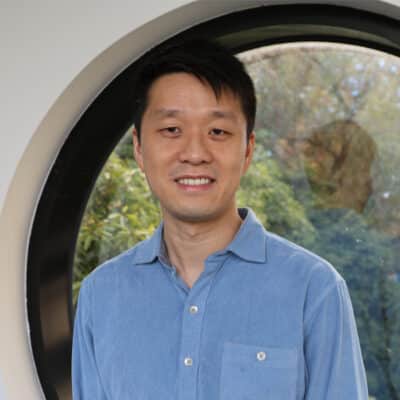Structural Biology of Inflammation and Cancer
Wong group
Auto-inflammatory disorders, cancers, and telomere biology disorders are a group of diseases caused by inherited mutations that result in mis-regulated inflammation and cell proliferation. The Structural Biology of Inflammation and Cancer group investigates how these mutations contribute to disease progression with the aim of developing new therapeutics.

Research group
Overview
The Structural Biology of Inflammation and Cancer Research group focus is on understanding a category of diseases including auto-inflammatory disorders, cancers, and telomere biology disorders that affect millions of Australians and nationalities worldwide.
The group’s focus is on inherited and somatic mutations that could result in mis-regulated inflammatory signalling, genome instability and cell proliferation that contribute to disease progression. The team use structural biology and biophysics approaches to understand the mechanisms of protein complexes underpinning inflammatory signalling and cellular aging.
Structural biology of inflammation
The Structural Biology of Inflammation and Cancer team investigate a group of pattern recognition receptors of the NOD-like receptor (NLR) family of inflammasomes that detect and respond to viral and bacterial infections and environmental damage like UV irradiation by initiating inflammatory signalling. They aim to understand how NLR inflammasome sensors are kept in the inactive state, how mutations could mis-regulate their activities to cause auto-inflammatory diseases, and how drug candidates inhibit inflammasome activity.
Structural biology of cancer development
The Structural Biology of Inflammation and Cancer group also investigate how the ends of chromosomes are protected by telomeres, which comprises repetitive protein-nucleic acid complexes important for maintaining genome stability and regulating cellular aging. This research focus is on understanding how the shelterin complex binds and protects the telomeric DNA, and how mutations in shelterin could disrupt this protection, which could lead to genomic instability contributing to cancer development and pre-mature aging diseases.
Diseases we research
Areas of focus
- Understanding the role of NLR inflammasomes in inflammatory signalling and auto-immune diseases
- Identifying drug candidates that inhibit NLR inflammasome activity
- Understanding how the shelterin complex protects the telomeric-DNA at the ends of chromosomes.
- Evaluating how disruptions to the DNA-protecting shelterin complex could lead to genomic instability and disease such as cancer and pre-mature aging
Research Group Head | Dr Wilson Wong
Auto-inflammatory disorders, cancers and telomere biology disorders are caused by inherited mutations and affect millions of Australians and nationalities worldwide. I investigate how mis-regulated inflammation and cell proliferation drives these disorders with the aim of developing treatments for patients.

Student opportunities

Collaborators

Publication highlights





